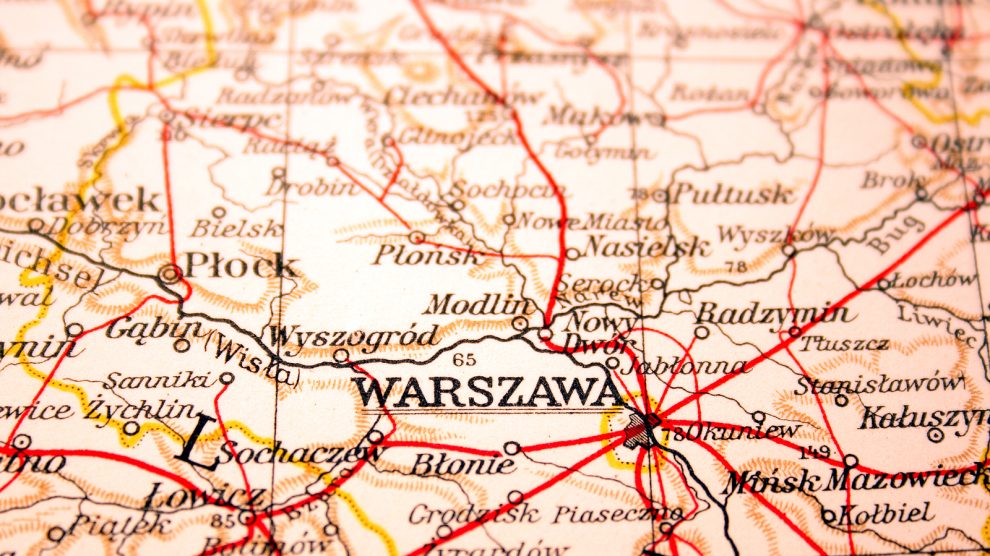Warsaw is a city that wears its history on its sleeve—its streets tell tales of war, survival, resistance, uprising, and rebirth. It’s not surprising—over the centuries, the Polish capital has endured more than most, and its past continues to shape its present.
For authors, Warsaw’s complex identity has long made it an evocative setting for literature. Below are five novels, the latest in our series of Five Essential Reads, that together open a window into Warsaw’s soul.
The Pianist, by Władysław Szpilman
A predictable first choice, but an essential one. This iconic memoir-novel hybrid needs no introduction for most, but its portrayal of wartime Warsaw is unforgettable. The Pianist is Szpilman’s harrowing account of survival during the Holocaust, as a Jewish musician hiding in the ruins of the city after his family is sent to concentration camps. What makes this novel stand out is its stark, unsentimental style—Szpilman’s prose mirrors the cold survival instinct he had to cultivate. The bombed-out, ghostly Warsaw becomes a character in itself, a silent witness to the atrocities. A powerful testament to resilience.
Antoni Libera’s Madame is a coming-of-age novel set in Warsaw during the 1970s, a time of growing political tension under communist rule. The story follows a young student who becomes infatuated with his French teacher, Madame, who represents a world of sophistication and mystery far removed from the drab, oppressive reality of post-war Poland. Libera’s writing is poetic yet sharp, capturing both the personal longing of adolescence and the collective sense of disillusionment with the political system. It’s a novel of intellectual discovery set against a Warsaw that, while scarred, retains a sense of quiet rebellion.
Though Flights isn’t strictly a Warsaw novel, parts of this fragmented, thought-provoking narrative are set in the city. Tokarczuk, awarded the Nobel Prize for Literature in 2018, weaves together stories of travel, migration, and human anatomy. Warsaw appears as both a historical landmark and a symbol of modernity—a place that connects, divides, and evokes. Tokarczuk’s avant-garde style turns the city into a metaphor for constant movement, an intersection of lives and histories that pass through, linger, and sometimes disappear. Her observations on Warsaw are subtle yet profound, giving the city a spectral presence.
Poland is an epic novel that traces the country’s turbulent history through the lives of three interconnected families over several centuries, including key events centered in Warsaw. Though it spans a wide timeline, the parts set in Warsaw vividly depict the city’s transformation, especially during its struggles for independence and survival in the 20th century. Michener’s ability to blend historical fact with compelling characters makes Poland a fascinating read for anyone looking to understand Warsaw’s enduring spirit and the forces that shaped the modern country. The novel combines the personal with the political, allowing Warsaw to shine as a critical focal point in Poland’s national narrative.
The Warsaw Sisters, by Amanda Barratt
In The Warsaw Sisters, Amanda Barratt brings to life a powerful tale of two sisters navigating the devastation of Nazi-occupied Warsaw. The novel delves into the lives of the resilient Dąbrowska sisters—one in the resistance, the other risking her life to shelter Jewish children. Following their separate, but connected paths, Barratt explores the moral complexities of survival, loyalty, secrets, and betrayal in a city under occupation. The novel is rich in historical detail and captures the tension of a city fighting for its life while dealing with fractured personal relationships. Barratt’s compelling storytelling brings both the horrors and humanity of Warsaw to vivid life.
Unlike many news and information platforms, Emerging Europe is free to read, and always will be. There is no paywall here. We are independent, not affiliated with nor representing any political party or business organisation. We want the very best for emerging Europe, nothing more, nothing less. Your support will help us continue to spread the word about this amazing region.
You can contribute here. Thank you.


